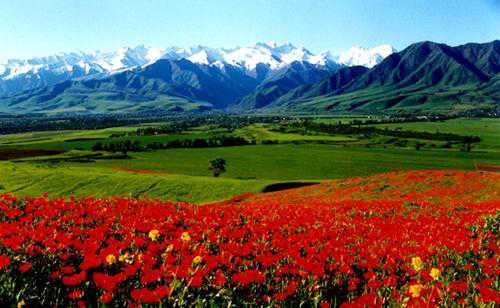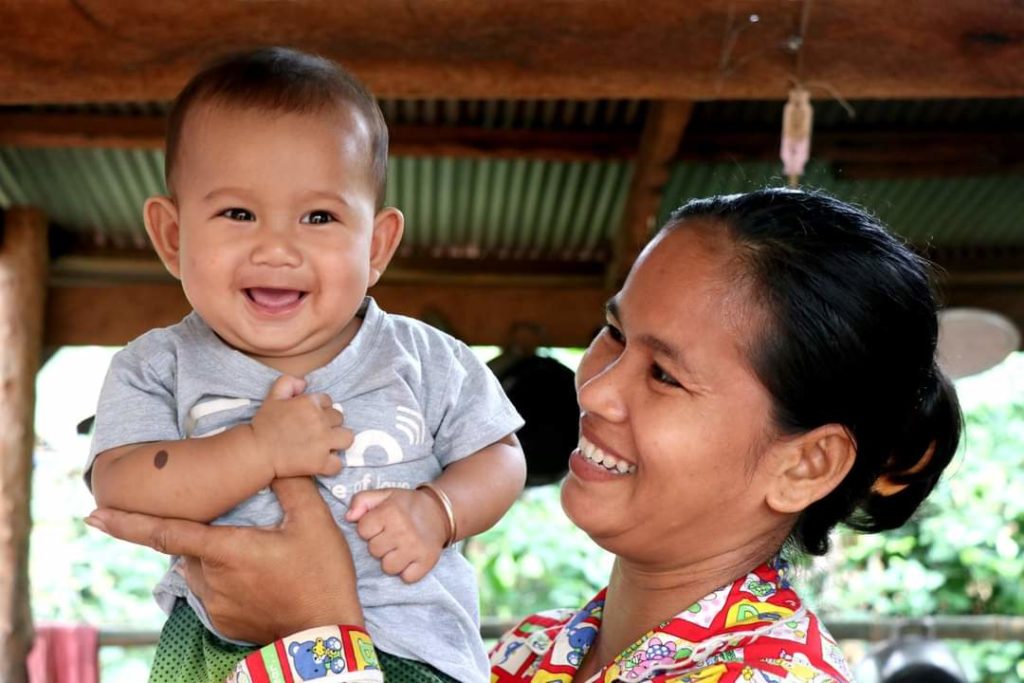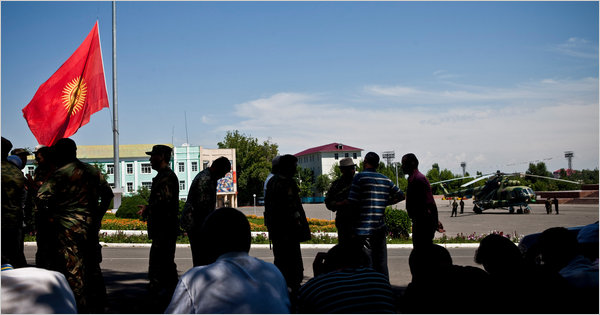17/01-2012 15:37, Bishkek – 24.kg news agency , by Asel OTORBAEVA
Almazbek Atambayev as the President of Kyrgyzstan has finished his first official visit. Nobody surprised that Turkey was chosen for beauty parade of the new head of the state at the foreign-policy scene. Turkey’s leader Abdullah Gül didn’t fail to note this fact. “It is symbolic that the President of Kyrgyzstan has paid his first official visit to Turkey,” he told journalists in Ankara.

According to him, Turkey considers this like symbol of friendship and affinity between two countries. “Kyrgyzstan is in a complicated position and it is needed to exert every effort in order to recover economy. I hope signed documents will assist in this. Turkey will continue rendering economic aid to Kyrgyzstan. Our investors are always ready to pour money into economy of Kyrgyzstan and into other spheres. It is necessary to continue military, cultural and educational cooperation,” Abdullah Gül said and together with Almazbek Atambayev signed Declaration for 20-years joint cooperation.
Why Bosporus?
It’s well-known that Turkey is a second home for Almazbek Atambayev where he has business and many friends. Just let’s remember the muddy story with “poisoning” the then Prime Minister Almazbek Atambayev who drank whether water or kefir from the bar in the Government. But the fact remains that Almazbek Atambayev entrusted his health to guru of Turkish medicine.
It’s known also that the family of the then leader of the Social Democratic Party of Kyrgyzstan (SDPK) sat snug in Turkey out of harm’s way during persecution of the opposition in Kyrgyzstan.
However, Kyrgyzstan’s foreign policy priorities are fuzzy and misty for the present. Neither the Ministry of Foreign Affairs nor the Parliament nor the President has voiced this concept yet. The country chosen for the first official visit gives grounds to suppose that Almazbek Atambayev has decided to “be unfaithful” to another his vis-à-vis – authorities of Russia – and to focus on broadening Eurasian geography.
“One is trying to bring Kyrgyzstan to its knees in exchange for drawing up and collection of money,” he stated in the Parliament of Turkey. According to him, the republic declared its independence 20 years ago. “But this is not absolute independence. We depend on powerful countries technically and financially. We have own reserves of oil but there is no one to make oil. Every year we import fuel with difficulties from other countries. Our natural resources were exported for trifling sum. But we never become slaves. Because it is better for all Turkomen to die than to be slaves on knees,” Almazbek Atambayev said.
Well, it’s not so hard to guess who meant the head of the republic…
We are Turkomen
Surely, Turkish political elite enjoyed compliments paid by the Kyrgyz President without turning a hair. Besides, Almazbek Atambayev used Turkish breaching protocol when holding meetings with official Ankara. “Relations between Kyrgyzstan and Turkey attain absolutely new level,” he stated to journalists during the visit. In his opinion, cooperation passes from formalities to the nitty-gritty. “I think Turkic-speaking countries have to develop at same paces as Turkey. Then states of Turkic world will get stronger,” said Almazbek Atambayev.
Speeches of the guest teemed with Turkic terms. He didn’t stop admiring at achievements of “the big brother” and didn’t hide he dreams about the same for his motherland.
About love
However, the Kyrgyz President safeguarding himself for future said the traditional: Russia remains strategic partner of Kyrgyzstan.
“Such states like Turkey, Russia supported us since independence. Russia is a strategic partner of Kyrgyzstan. Rapidly developing relationships between Turkey and Russia encourage us. Our country will benefit from this. Turkey is example for Kyrgyzstan how to build strong democratic state. I think all Turkic-speaking countries have to follow this way,” he said to deputies of the Grand National Assembly.
Meanwhile Turkish press covered the visit in such a manner, “The President of Turkey Abdullah Gül and his wife Hayrünnisa Gül gave an entertainment in honor of the Kyrgyz President Almazbek Atambayev paid the official visit to Turkey and his wife Raisa Atambayeva. Speaking at the dinner Atambayev called Gül “the big brother” and his wife “daughter-in-law”. As Habertürk reports, “Atambayev, having called Turkey “the Motherland”, said, “Kyrgyzstan is far away from Turkey however every Kyrgyz knows that Turkey for Kyrgyz is star, the Motherland directing to us”.
“Big” prospects…
Kyrgyz officials depicted many prospects following the first official visit to the friendly state and they exaggerated traditionally prospects’ scale. For example, the Kyrgyz Foreign Minister Ruslan Kazakbaev said during visit to Ankara that “probably, Kyrgyzstan will be the first country for which market of Turkey will be opened by quota system”.
According to him, our delegation handed over a draft agreement on issuing quotas by Turkey for labor migrants from Kyrgyzstan. Meanwhile our compatriots work illegally on shores of Bosporus.
Let’s note that the agreement on imposing visa-free regime between Kyrgyzstan and Turkey was signed in 2011. However, Turkey hasn’t still ratified the agreement.
Besides, Turkey promised to construct a bread-baking plant in Chuy province. The Secretary General of the Union of Turkish World Municipalities Mustafa Bashkurt told journalists they are asked about this … by the mayor’s office of Bishkek.
He noted that Bishkek mayor’s office stands ready to afford a territory. According to his estimations, € 3.5 millions will be needed to construct the plant.
Mustafa Bashkurt didn’t mention whether Bishkek mayor Isa Omurkulov told the Turkish side about future of local representatives of small business or about risks in competitive ability for Turkey.
The President of Kyrgyzstan promised Turkish businessmen that he would ensure total protection of their investments. “My will of the head of the state will be enough to give guarantees to investors,” he told journalists in Istanbul.
… and unknown
So, one just can guess about other prospects as the President said nothing because he feared to hoodoo. “Let me note I met with ten Turkish billionaires who are ready to discuss issues on investing in Kyrgyzstan. They will visit the republic and consider our proposals to work in spheres of telecommunication, power economy, and mining and garment industry where they have big experience. The main thing is we have regained confidence shattered for recent 20 years when bribes arranged all deals. Our task is to transform Kyrgyzstan into paradise for investors then people will live well. The main thing now is that clean-up bodies will work and thefts will be brought in prison,” Almazbek Atambayev said finishing visit to Turkey.
Then Almazbek Atambayev reproached with Turkish Airlines for high prices at tickets. He told journalists that it is needed to create a Kyrgyz-Turkish airline. It is easy to guess who will create and head it…
What to do with multivector?
Kyrgyzstan cannot escape multivector. Authorities of the country will shower promises “to be friends”, assure in political sympathy and admire at the experience of a country where they will pay visits.
Atambayev’s schedule for 2012 has trips to Russia, CIS countries and Georgia, and to far-abroad countries as well as attendance of summits of CIS, EurAsEC and CSTO…
Compliment remains the basis for construction “new” (old) relationships with other states (read “partners”). Constituting part of foreign debt formed by foreign investments and laying burden on next generations leaves no another forms of building foreign-policy arc.
So, they have to continue master graceful bows. They will be very useful during a next official visit…
URL:




